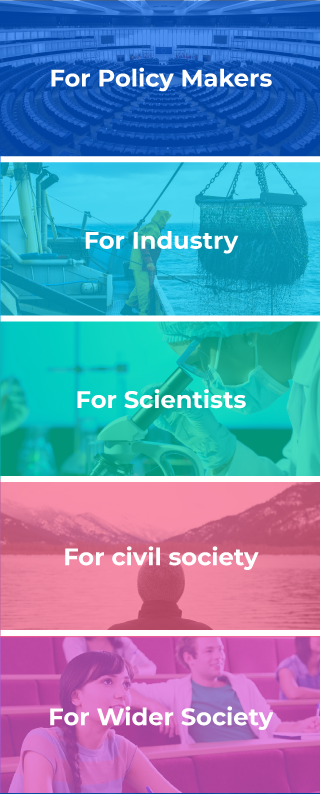
In this edition:
OceanICU is a five-year project, funded by Horizon EU and UK Research and Innovation, that seeks to gain a new understanding of the biological carbon pump and its processes to provide fundamental knowledge and tools to help policy makers, regulators and Ocean industry—fishing and mining, along with the wider blue economy—manage and understand the impact of their actions on Ocean carbon. This will ultimately lead to a better approach for addressing climate change in alignment with the EU Green Deal to reduce the net emissions of greenhouse gasses to Zero by 2050.
A Note from our Coordinator Richard Sanders
Hello. Welcome to the second newsletter of the OceanICU project and thank you for your interest.
We are now well into the swing of the project and whenever I talk to a different partner in our consortium, I hear exciting stories about new staff, new data and new activities. We are pleased to update you on some of these things in this newsletter, including a summary of our first webinar and the latest modelling workshop, links to blogs and articles recently published, an overview of OceanICU research on the Apero cruise, our plans for November’s Fish Carbon communication focus and an announcement about the newly formed OceanICU early career network.
As we begin the wrap up on our first year, we are planning several events including a third modelling workshop, a virtual panel at this year’s COP and our second webinar focused on Fish Carbon (23rd November – 2 PM CEST).
We look forward to updating you again in a December newsletter. In the meantime, keep up with the latest OceanICU news on the website and via social media.
Best Wishes,
Richard Sanders
OceanICU Project Coordinator
NORCE
Bergen, Norway

Intro to the Biological Carbon Pump & OceanICU
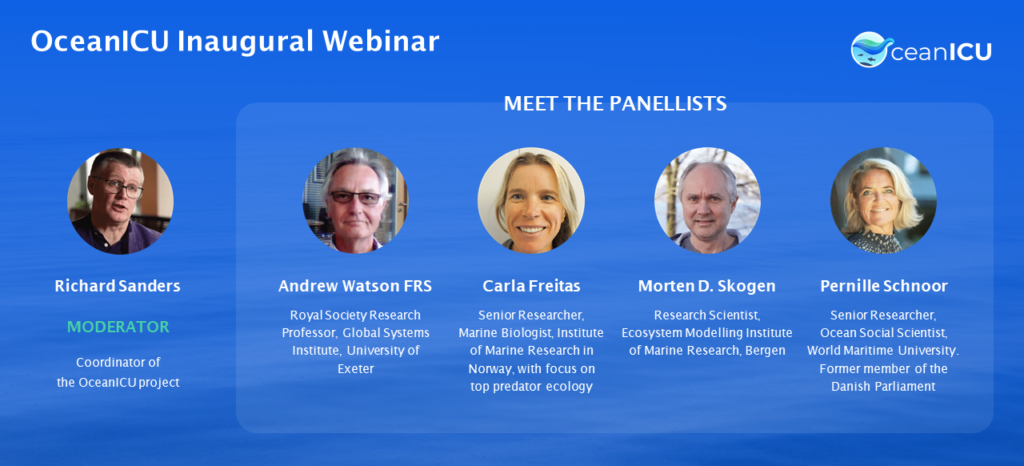
OceanICU successfully held the first webinar in a planned series on September 28th with a demonstration on how current research will make its way into models that will help industry, policy and wider society better manage our climate.
The event kicked off with an overview of the project and the current state of the global carbon sink by Richard Sanders and Andrew Watson. Then Carla Freitas introduced the work she is doing for her investigation into the whale carbon flux, and Morten Skogen outlined how the data from Carla’s research is being integrated into models. Pernille Schnoor provided insights on the complex process of how scientific knowledge will find its way into policy.
A video recording of the webinar and a pdf of the presentation can be found in the virtual goodie bag, among other related items.
Fish Carbon Webinar - Coming Soon
23rd November at 2pm CEST | The next OceanICU webinar will be focused on fish carbon featuring David Reid and Debbi Pedreschi of the Irish Marine Institute as well as invited guests from the OceanICU consortium.
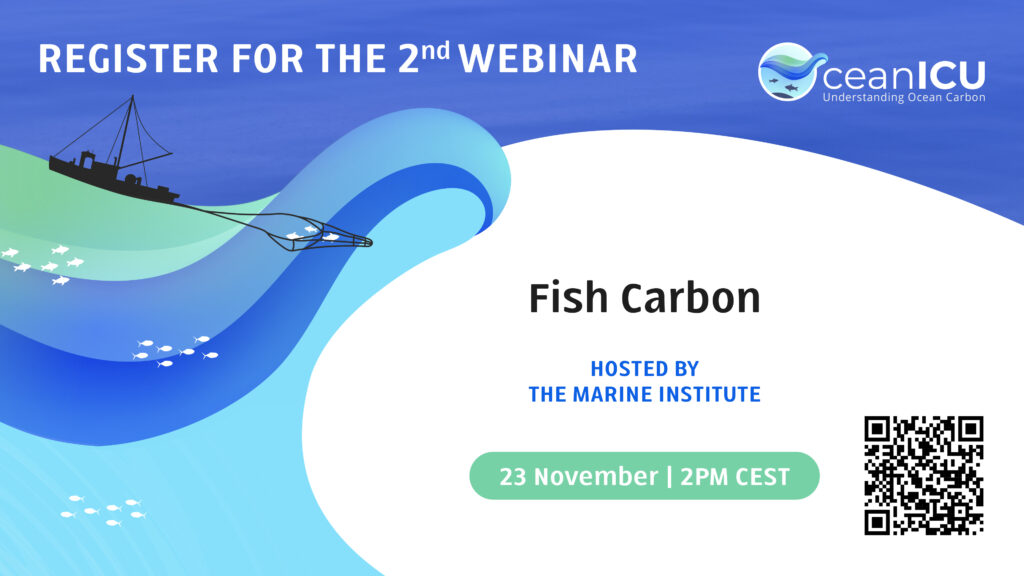
Modelling Workshop Part Deux
A three-hour virtual workshop was held for the OceanICU partners, allowing participants to configure and run several of the biogeochemical models used in OceanICU for a geographic location of their choice. The focus was on making models accessible to modellers and empiricists alike, thereby optimising knowledge transfer between work packages. The workshop was led by Jorn Bruggeman of Bolding & Bruggeman ApS as part of Work Package 6, with contributions from GEOMAR, PML and CMCC.
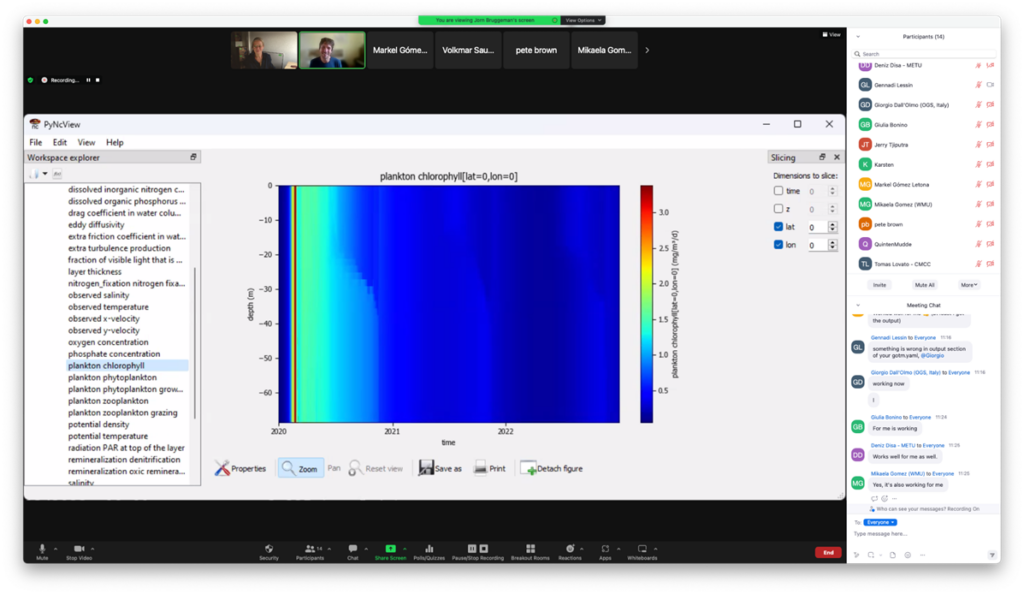

APERO Cruise
June 3 to July 17, 2023 | North Atlantic
OceanICU field work took place on board the research vessels the Pourquoi Pas? and the Thalassa in tandem with the French funded APERO Cruise.
In support of Work Package 4, the goal of the sampling was to assess the vertical distribution of inorganic carbon fixation in the dark ocean compared with prokaryotic heterotrophic production, in free-living prokaryotes and prokaryotes attached to suspended particles, vs prokaryotes attached to gravitational sinking particles, as a function of substrate quality and particle type. The results will be integrated into OceanICU models.
On behalf of OceanICU, the work was conducted by Christian Tamburini of AMU, CNRS. Interested in learning more about the Apero cruise? Check out the dedicated website.

OceanICU team members have been taking to their keyboards to share various threads of the OceanICU story with blogs and articles
A Path to Net Zero
Richard Sanders provides an overview of the biological carbon pump and discusses OceanICU’s aims to examine the impact of blue economy industries on ocean carbon storage, and how decision support tools will be developed to help society address climate change management in the article, A Path to Net Zero featured in Sea Technology.
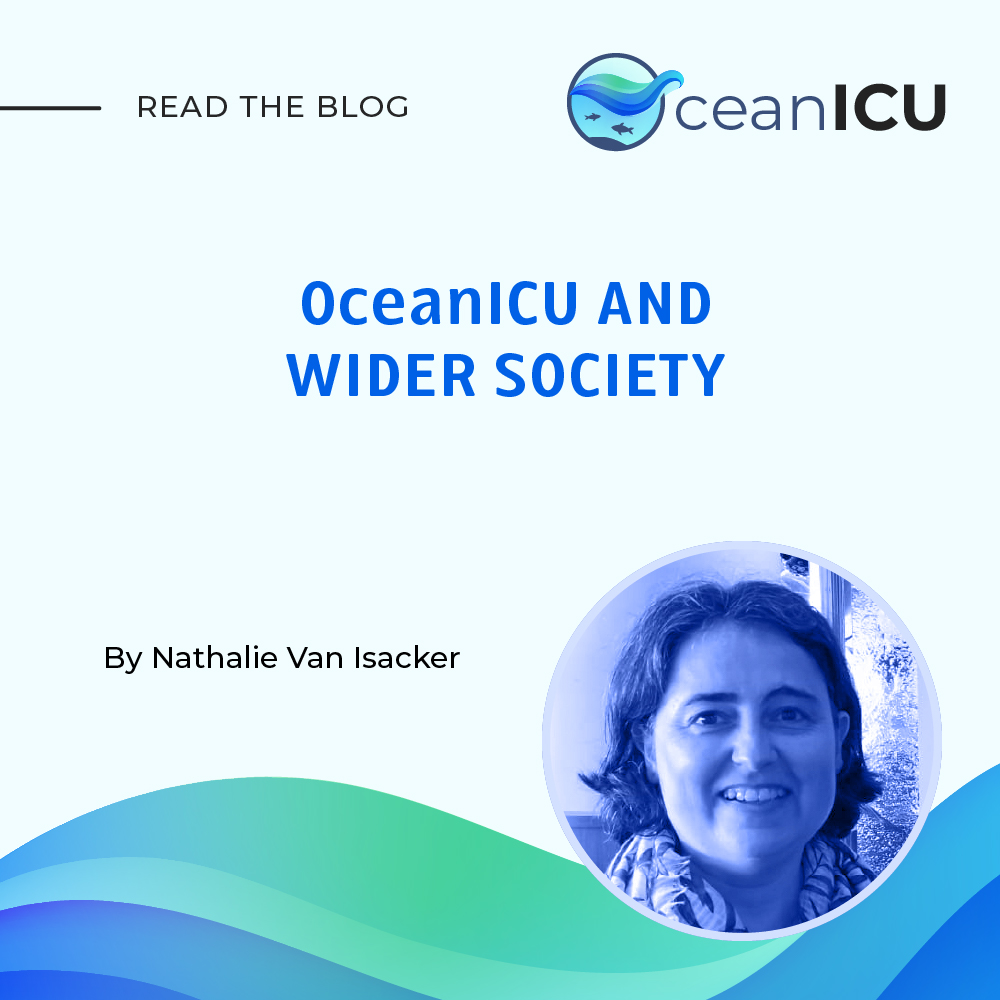
How does the ocean influence us & what is our influence on the ocean? How will the knowledge gained from the OceanICU project contribute to enhanced Ocean Literacy? Nathalie Van Isacker of Seascape Belgium addresses these questions and outlines how the European Atlas of the Seas, together with other tools and activities, will help create a bridge between science and wider society.
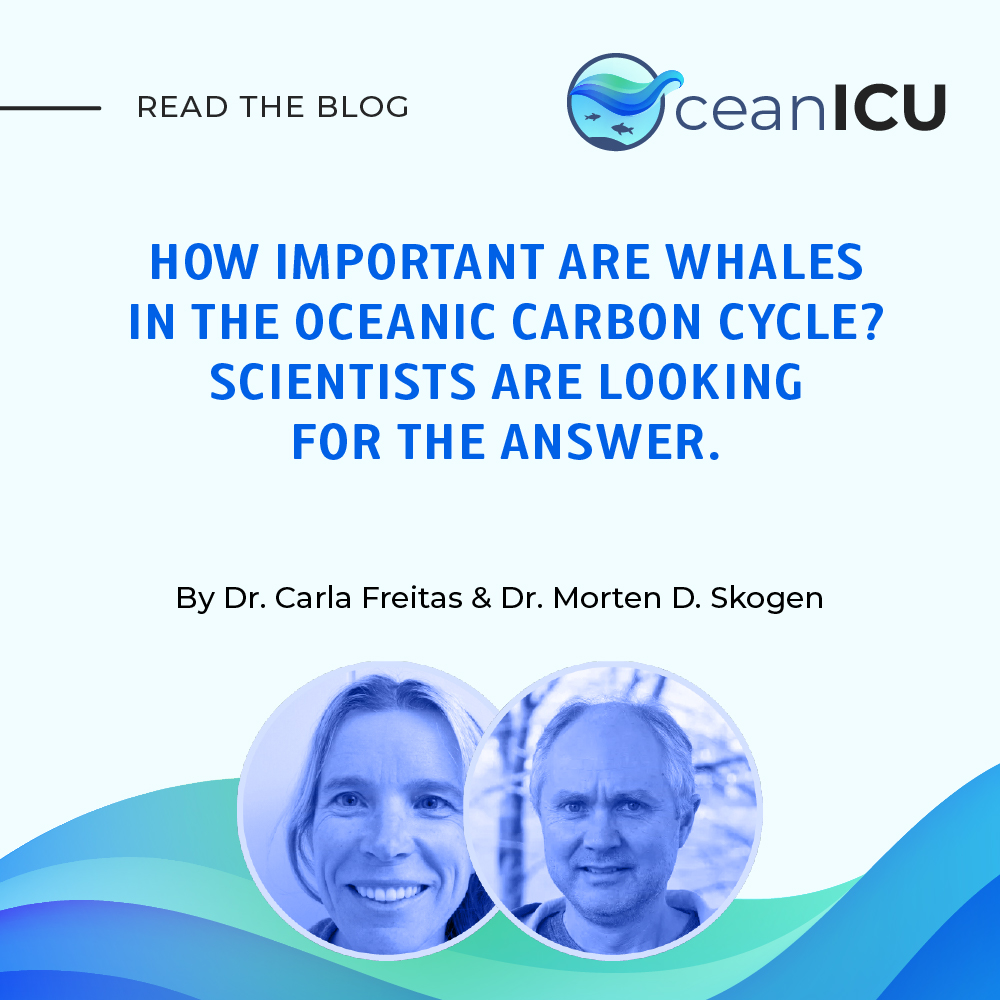
Carla Freitas and Morten Skogen of the Marine Institute Bergen, Norway discuss their research in an informative article outlining field work on Minke whales and how the data will be integrated into models that will help scientists better understand the role of whales on the carbon cycle.

Fish Carbon Thematic Campaign
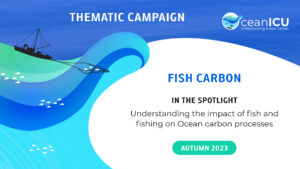
One of the many facets of the OceanICU investigation is understanding the potential role that fish play in the global carbon cycle, how their role may have changed as a result of fishing, and how fishery activities might be managed to maximise climate and fisheries benefits. In the upcoming weeks OceanICU is putting a spotlight on fish carbon with a webinar on the 23rd of November, a series of stakeholder workshops, and the publications of fish carbon related blogs, video clips and articles exploring this important aspect of understanding ocean carbon uptake.
Stay tuned to social media and the news section of our website for notifications regarding the upcoming events and activities related to fish carbon.
World Ocean Assessment Pool of Experts
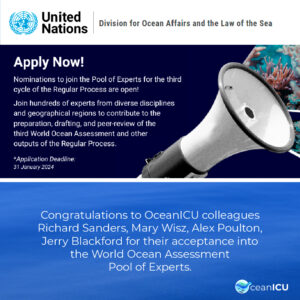
OceanICU scientists have been accepted into the United Nations’ prestigious World Ocean Assessment Pool of Experts. Anyone who might be interested in applying, please note there is a new deadline: January 2024.
The Intergovernmental Science-Policy Platform on Biodiversity and Ecosystem Services (IPBES) is seeking experts and practitioners from academia, government and civil society.
Early Career Scientist Network
A network of OceanICU early career and postdoc researchers has been formed to create a supportive platform for the sharing of scientific progress, ideas and learning, and to promote collaboration within OceanICU on all aspects related to ocean carbon. It is being facilitated by Fiona Culhane of the Irish Marine Institute. The network is open to anyone in the OceanICU consortium who wants to benefit from the career development opportunities it may bring and the research culture fostered.
Stay tuned for updates on activities and news from this emerging group.


6-10 Nov, 2023
ICOS/SOCAT Workshop, Oostende, Belgium
23 Nov, 2023
Fish Carbon Webinar, Virtual
29-20 Nov 2023
EMODnet Open Conference, Brussels, Belgium
(OceanICU poster at the Virtual Display)
12 Dec 2023
COP Virtual Pavillion
11-15 Mar 2024
OceanICU 2nd Annual (Virtual) Meeting

